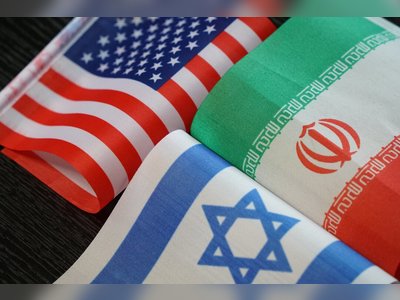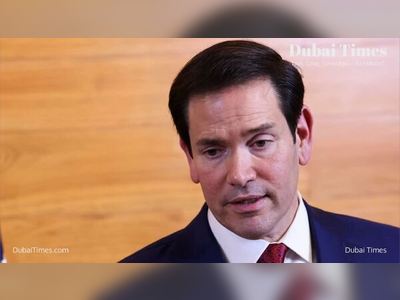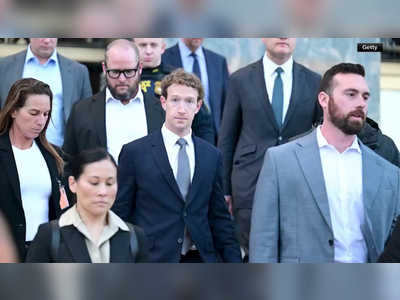Netanyahu Dismisses Shin Bet Chief Amid 'Loss of Trust' and 'Qatargate' Corruption Investigations Involving Netanyahu's Advisors
The dismissal of Ronen Bar as head of the Shin Bet has exposed deep divisions within Israel's political and security frameworks, raising concerns about potential implications for national unity and stability.
In a move that has intensified internal divisions within Israel, Prime Minister Benjamin Netanyahu has dismissed Ronen Bar, the head of the Shin Bet internal security agency.
Netanyahu cited a "continued lack of trust" as the reason for Bar's removal, emphasizing that complete trust between the Prime Minister and the head of Shin Bet is imperative, especially during times of war.
This decision comes amid ongoing investigations into allegations that some of Netanyahu's close advisors received payments from Qatar, a nation known to support and host Hamas leadership.
The Shin Bet, under Bar's leadership, has been probing these allegations, raising concerns about potential conflicts of interest during a time when Israel is engaged in conflict with Hamas.
The dismissal has sparked significant public protests and criticism from opposition leaders, who argue that Netanyahu's actions may be politically motivated and could undermine national security during a critical period.
Attorney General Gali Baharav-Miara has also questioned the legality of the dismissal, suggesting it may lack proper legal basis and could represent a conflict of interest, given the ongoing investigations involving the Prime Minister's aides.
The timing of this internal upheaval is particularly concerning, as Israel is engaged in a protracted conflict with Hamas, with ongoing military operations in Gaza and the complex task of securing the release of Israeli hostages.
The dismissal of the Shin Bet chief during such a critical period raises questions about the stability and continuity of Israel's security operations.
"A house divided against itself cannot stand" (Abraham Lincoln)
The dismissal of Ronen Bar as head of the Shin Bet has exposed deep divisions within Israel's political and security frameworks, raising concerns about potential implications for national unity and stability.
This decision has sparked significant public protests and criticism from opposition leaders, who argue that Netanyahu's actions are motivated by personal interests and could undermine national security during a critical period.
The timing of this internal upheaval is particularly concerning, as Israel is engaged in a protracted conflict with Hamas, Lebanon, and Iran, with ongoing military operations in Gaza and the complex task of securing the release of Israeli hostages.
Internal divisions and political infighting can undermine the effectiveness of national security efforts, especially during times of war.
Maintaining stability and a unified front is essential to navigate the multifaceted challenges Israel currently faces.
Under Israeli law, the Prime Minister possesses the authority to dismiss the head of the Shin Bet.
However, Israel's political system operates within a framework where governmental decisions and actions are subject to oversight, permissions, and instructions from the Attorney General and the Supreme Court, irrespective of the written law.
Although this approach may seem controversial to Americans and proponents of direct "rule of the people," it has functioned effectively for approximately 80 years, contributing to Israel's stability, strength, and prosperity.
If it works - don't fix it.
Reforming a political and legal system that has functioned effectively for 80 years should be undertaken with broad societal consensus and not during times of war.
Implementing significant changes without widespread agreement, especially amid ongoing conflict, can lead to internal divisions and instability between those who benefit from the current power structures and those who do not.
Recent events in Israel have demonstrated the risks associated with pursuing contentious reforms without sufficient public support.
Therefore, it is crucial to approach systemic changes during peaceful times and with the backing of a broad spectrum of society. Otherwise, the next government will reverse them, and the one after that will change them again — leaving nothing truly resolved in a way that addresses everyone’s needs, problems, and concerns.
Netanyahu cited a "continued lack of trust" as the reason for Bar's removal, emphasizing that complete trust between the Prime Minister and the head of Shin Bet is imperative, especially during times of war.
This decision comes amid ongoing investigations into allegations that some of Netanyahu's close advisors received payments from Qatar, a nation known to support and host Hamas leadership.
The Shin Bet, under Bar's leadership, has been probing these allegations, raising concerns about potential conflicts of interest during a time when Israel is engaged in conflict with Hamas.
The dismissal has sparked significant public protests and criticism from opposition leaders, who argue that Netanyahu's actions may be politically motivated and could undermine national security during a critical period.
Attorney General Gali Baharav-Miara has also questioned the legality of the dismissal, suggesting it may lack proper legal basis and could represent a conflict of interest, given the ongoing investigations involving the Prime Minister's aides.
The timing of this internal upheaval is particularly concerning, as Israel is engaged in a protracted conflict with Hamas, with ongoing military operations in Gaza and the complex task of securing the release of Israeli hostages.
The dismissal of the Shin Bet chief during such a critical period raises questions about the stability and continuity of Israel's security operations.
"A house divided against itself cannot stand" (Abraham Lincoln)
The dismissal of Ronen Bar as head of the Shin Bet has exposed deep divisions within Israel's political and security frameworks, raising concerns about potential implications for national unity and stability.
This decision has sparked significant public protests and criticism from opposition leaders, who argue that Netanyahu's actions are motivated by personal interests and could undermine national security during a critical period.
The timing of this internal upheaval is particularly concerning, as Israel is engaged in a protracted conflict with Hamas, Lebanon, and Iran, with ongoing military operations in Gaza and the complex task of securing the release of Israeli hostages.
Internal divisions and political infighting can undermine the effectiveness of national security efforts, especially during times of war.
Maintaining stability and a unified front is essential to navigate the multifaceted challenges Israel currently faces.
Under Israeli law, the Prime Minister possesses the authority to dismiss the head of the Shin Bet.
However, Israel's political system operates within a framework where governmental decisions and actions are subject to oversight, permissions, and instructions from the Attorney General and the Supreme Court, irrespective of the written law.
Although this approach may seem controversial to Americans and proponents of direct "rule of the people," it has functioned effectively for approximately 80 years, contributing to Israel's stability, strength, and prosperity.
If it works - don't fix it.
Reforming a political and legal system that has functioned effectively for 80 years should be undertaken with broad societal consensus and not during times of war.
Implementing significant changes without widespread agreement, especially amid ongoing conflict, can lead to internal divisions and instability between those who benefit from the current power structures and those who do not.
Recent events in Israel have demonstrated the risks associated with pursuing contentious reforms without sufficient public support.
Therefore, it is crucial to approach systemic changes during peaceful times and with the backing of a broad spectrum of society. Otherwise, the next government will reverse them, and the one after that will change them again — leaving nothing truly resolved in a way that addresses everyone’s needs, problems, and concerns.
Translation:
•
Translated by AI











